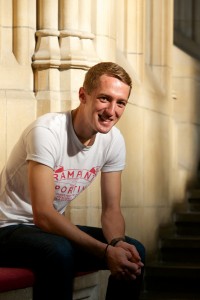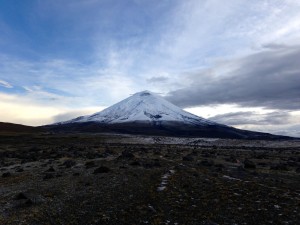 Throughout the coming year we will be showcasing the various members of the BDC team, so that you can learn our stories and get to know us a bit better. We’ll be kicking off these posts with Loriel Anderson, the Student Development Officer at Bristol Doctoral College. Loriel began working at the BDC in September, 2013, while writing up her dissertation. She completed her PhD in Classics and Ancient History at the University of Bristol in February, 2014.
Throughout the coming year we will be showcasing the various members of the BDC team, so that you can learn our stories and get to know us a bit better. We’ll be kicking off these posts with Loriel Anderson, the Student Development Officer at Bristol Doctoral College. Loriel began working at the BDC in September, 2013, while writing up her dissertation. She completed her PhD in Classics and Ancient History at the University of Bristol in February, 2014.
I really love working for the BDC. Although this is not where I had thought I would be when I started my PhD, I find my work very fulfilling, which probably wouldn’t be the case, if my PhD journey hadn’t been so rocky.
I came to Bristol in 2007 to begin a PhD in Classics and Ancient History. My background was in History, not Ancient History, so I knew that I would have a lot to learn, and that completing a PhD would be a challenge, but I don’t think I realised just how challenging it would really be. My journey, like most others, was not a smooth one. In addition to the intellectual hurdles I encountered, which I had somewhat expected and prepared for, I had a number of personal difficulties to face as well. In January of the first year of my PhD my mother passed away very suddenly. I immediately flew back to Canada to be with my family, and consequently missed most of the second teaching block of my first year. With time I managed to re-focus and get my studies back on track, but then in March of my third year my father was in a very serious car accident and almost passed away himself. I again returned home and spent a month caring for him in hospital. Needless to say, the separation from my family while I studied has been one of the most difficult aspects of my programme. Given these family emergencies, and the fact that I was asked to return to my previous University to teach for a semester, I was granted a one-year extension to my programme.
I submitted my dissertation on September 30th 2012, went to Greece for two weeks to celebrate and relax, and then returned to Bristol to assist with delivering a Greek unit for a term while I prepared for my Viva. I had my Viva in January, 2013, and although I had felt quite prepared, and was proud of what I had produced, I failed. That’s a hard thing to admit. Anyone who pursues a postgraduate degree has undoubtedly done well in all of their previous studies. I had never failed anything and now I had just failed the most important examination I had ever faced. My examiners acknowledged that my research was interesting and innovative, and noted that I had made a significant contribution to our understanding of the field, but felt that I hadn’t expressed those findings clearly enough. I had been too diffident to other scholars in my field, too submissive. They wanted my “voice” to come through more clearly, and asked me to re-write my dissertation and re-submit it. As you might imagine, this was not an easy process. Having to pick yourself back up after this kind of a failure is extremely difficult. The disappointment and defeat you feel in yourself are not easy to contend with. Looking back on it, I can see that my examiners had a point – that’s also not easy to admit. I wanted them to be wrong. I wanted to feel that I had been cheated, that it was all some kind of horrible mistake. Once I got over myself, I was able to see what they meant, and I spent the next 9 months ruthlessly editing, revising, and re-writing my entire dissertation. And it passed, with no further corrections, and no need for another Viva. And so I received my doctorate.
But I still feel a little like they stole the joy I had felt in my research. I no longer love my research the way that I had, and I certainly have no desire to continue in academia, despite the fact that I recognise that I am now a much more rigorous scholar. What I do love is helping other researchers through their degrees. My journey was not a smooth one, but I did have a great supervisor and a strong network of friends and family who helped me through the process. I know that I would have benefited from the support that the BDC is now able to offer. Being a part of a research community, feeling like I wasn’t the only one who was struggling, the only one who ever failed, would have significantly improved my experience. I would have benefited from workshops on how to plan and manage your PhD, how to write your dissertation, how to manage your time. I suppose this is why I am so passionate about what I do now. I love working with other researchers, ensuring they have access to the resources that I didn’t know were available. I love helping others to tell their stories, so that no one else need feel so alone. I love being able to respond, when people ask for help, knowing where to point them to get the support that they need, or simply being a shoulder that they can lean on.
Not everyone’s experience is as difficult as mine was – indeed, I hope that no one else will have to go through the things that I did – but it’s also important to acknowledge that doing a PhD is never easy. And it wouldn’t be worthwhile if it was.




